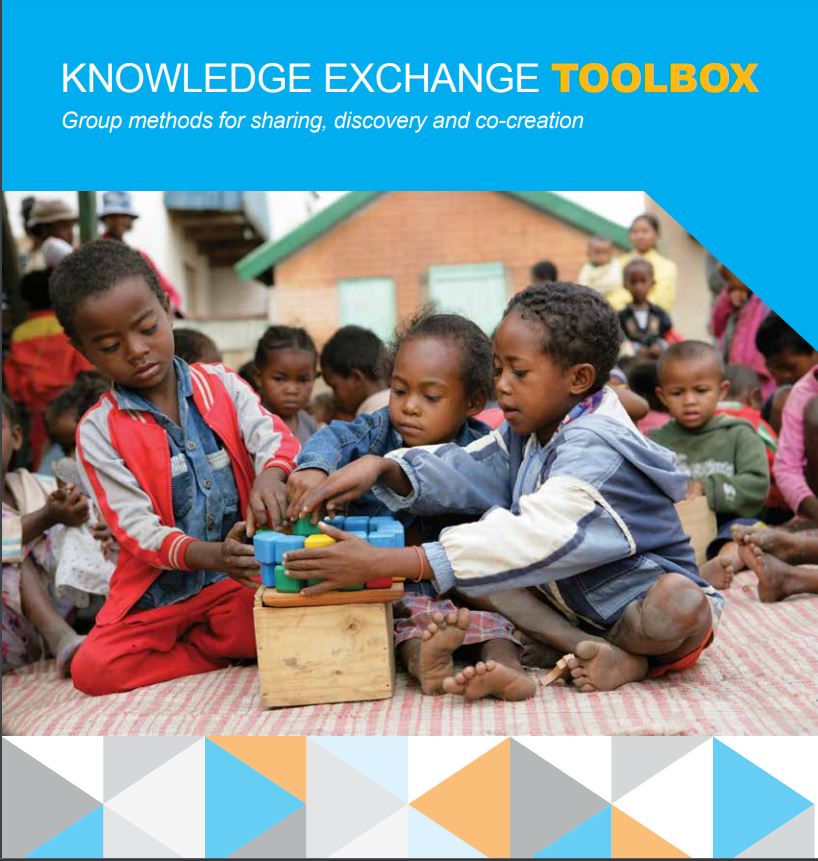Knowledge Exchange Toolbox

This Toolbox was created to help UNICEF staff and partners to plan and implement successful knowledge sharing events. A successful event is one that creates or shares significant practical knowledge – knowledge that is relevant for achieving results. This may be academic or technical, or it may be ‘know-how’, based on experiences of how to achieve results in a particular context, or how to address specific challenges.
This Toolbox is for anyone who needs to make effective decisions, facilitate or guide effective decision-making processes, or manage or coordinate group work in development that requires the knowledge of multiple persons to succeed. Some of the audience may be full-time specialists in knowledge exchange/knowledge management, while others may be managers and team leaders who need effective solutions to challenging problems. (Managers and leaders do not necessarily need to know how to apply the tools themselves: It may be enough for them to know that relevant, effective tools exist, so that they can find resources and persons who can apply them on behalf of the team. Still others will be technical specialists who want a few additional tools in their arsenal, to complement their own research and analytical skills. Such users may ‘specialize’ in only a few of these tools, and may turn to others for application of the other tools. This Toolbox is a work of research, compilation and adaptation.
All of the tools in this Toolbox are based on methods and approaches used previously by UNICEF and other organizations and individuals. They have been edited, adapted based on the experience of the many contributors, and reviewed by a panel of internal and external experts and practitioners. This Toolbox aspires to offer a selection and distillation of multiple sources for each tool (listed in the References) into a whole that blends just enough theory to see the big picture, with clear, easy-to-follow and complete instructions for application. With only a couple of exceptions, these tools are applied in groups, either in-person or online.




